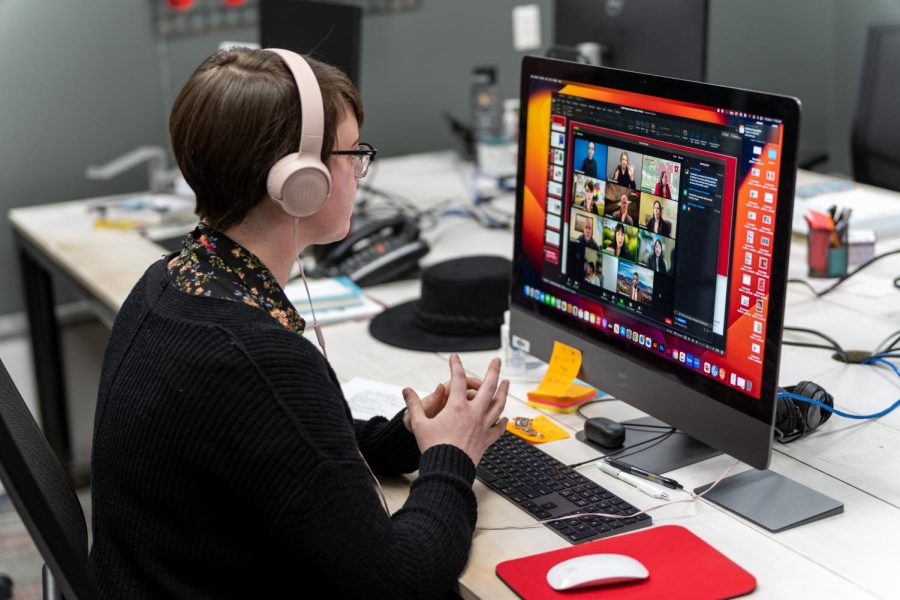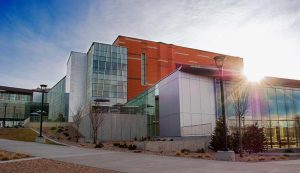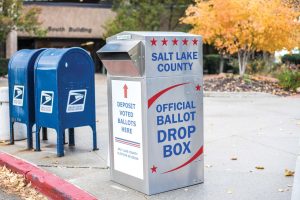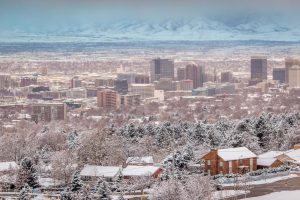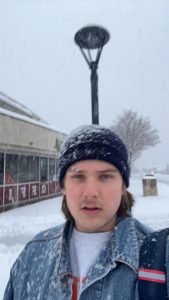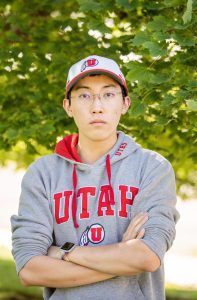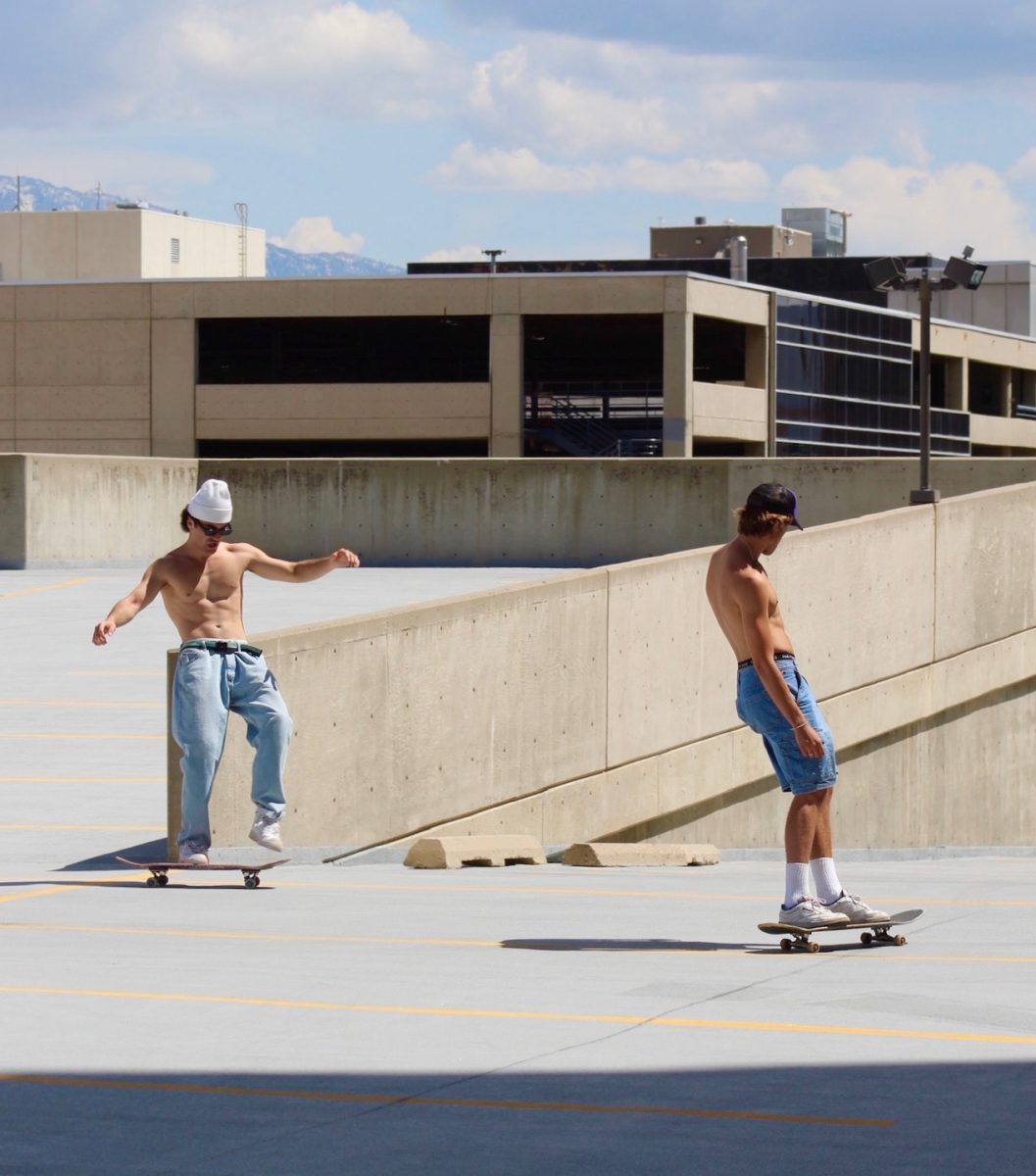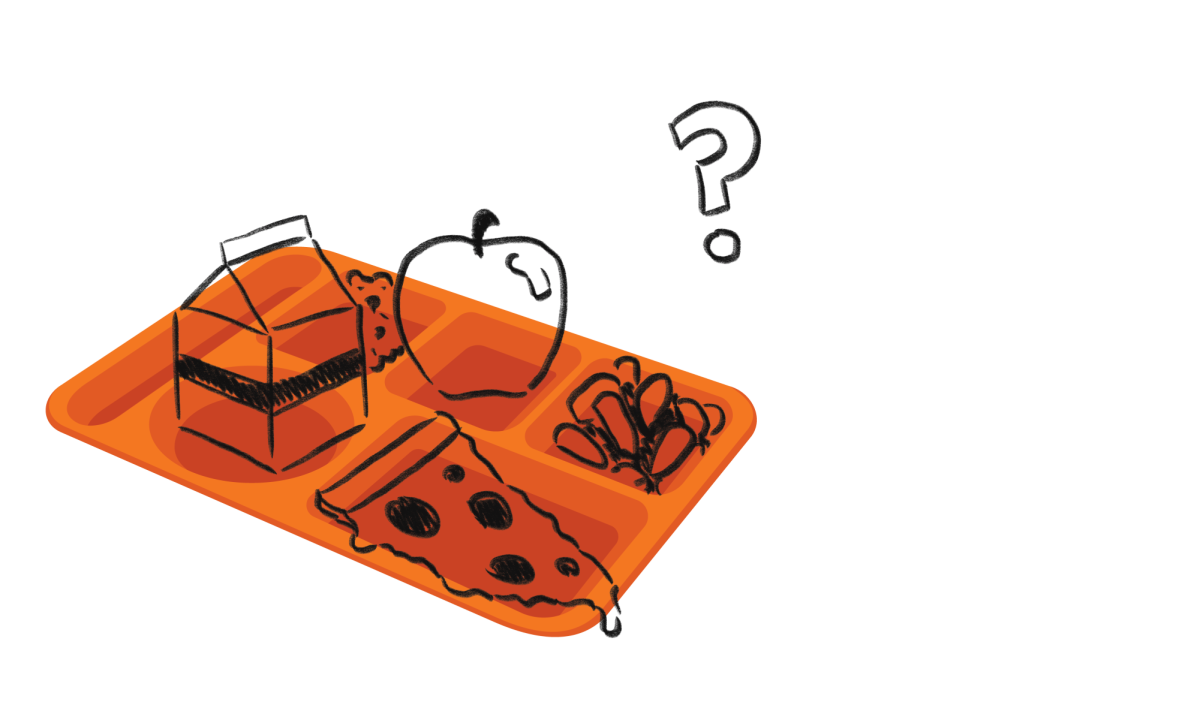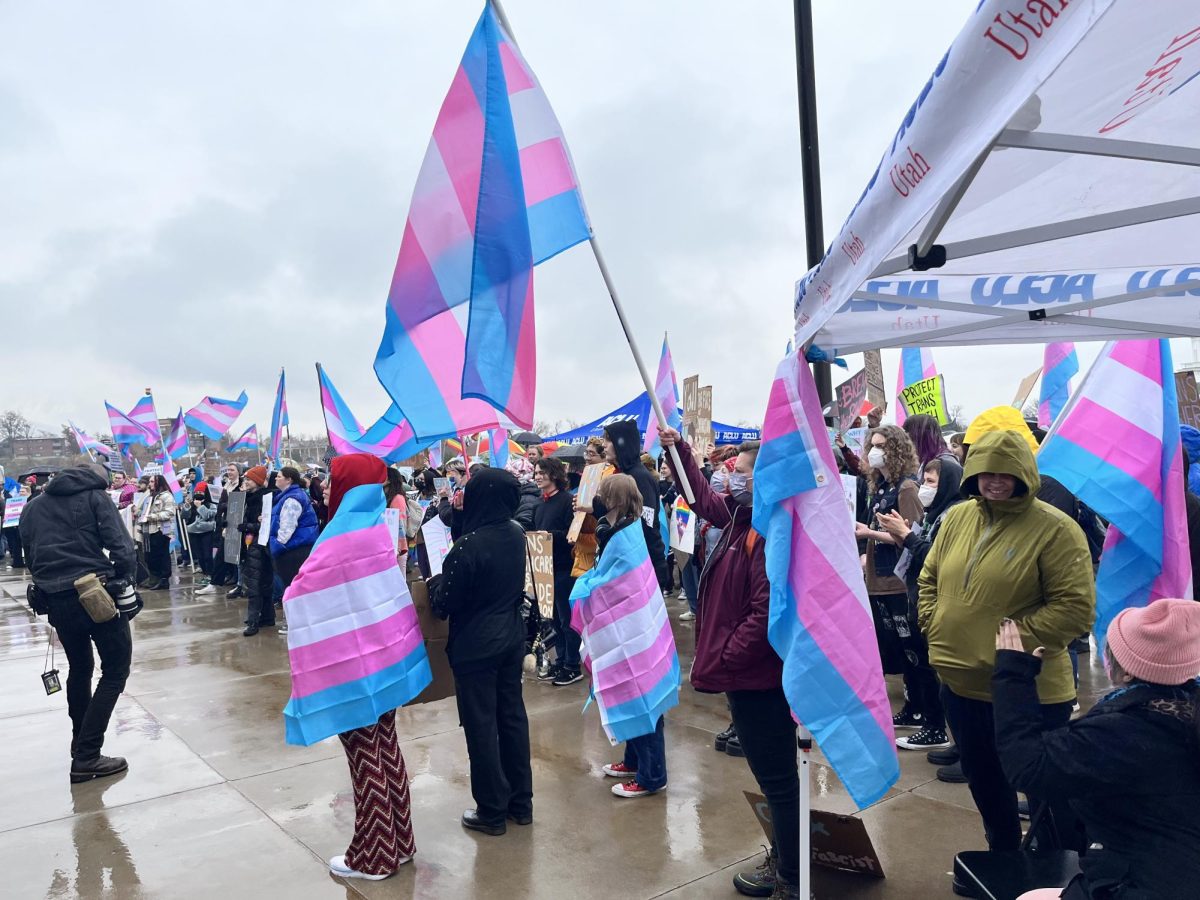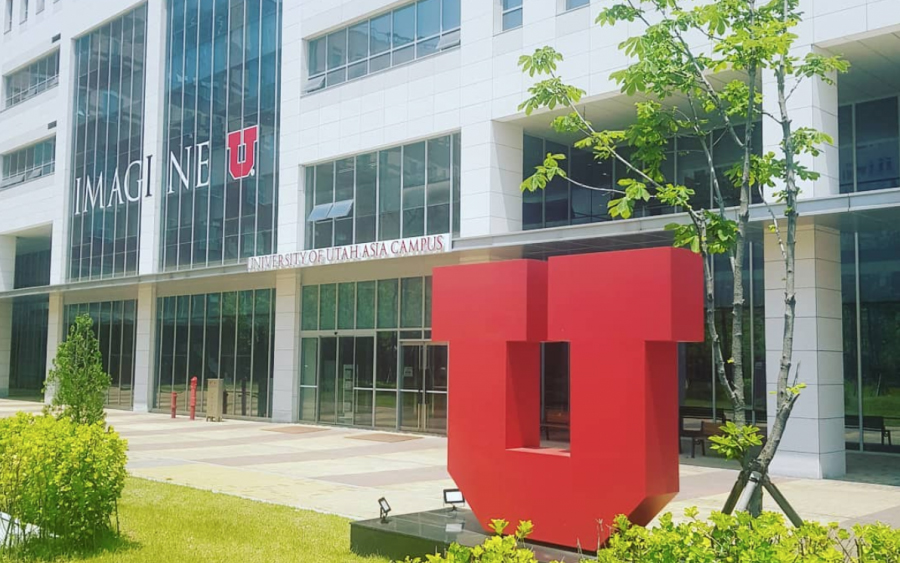U Celebrates Inaugural Day of Disability and Neurodiversity
Panelist Jen Rosio prepares for the virtual event “Making it Accessible: Actions for Accessible Events, Presentations, Social Media, and Basic Web Design” in the Equity, Diversity, & Inclusion office on the University of Utah campus in Salt Lake City on Thursday, Dec. 1, 2022. (Photo by Xiangyao “Axe” Tang | The Daily Utah Chronicle)
December 8, 2022
The University of Utah celebrated its first annual Day of Disability and Neurodiversity this year, in an effort to help foster accessibility and support students with disabilities on campus.
“The Day of Disability and Neurodiversity is designed to recognize the year-round importance of promoting understanding and inclusivity on campus and facilitating discussion on ways to improve access for all,” said Pamela Bishop, director of marketing and communications for the office of Equity, Diversity, and Inclusion, in an email interview.
The celebration was held Dec. 1 and included two virtual events that were open to both students and faculty. The first event was titled “Making it Accessible,” and included several presentations and discussions that highlighted ways the U can foster and grow accessibility. The second event, titled “Campus Experiences of Disability, Neurodiversity and Ableism,” was later in the day and featured three open discussion groups in which students could share their experiences with disabilities on campus.
Bishop also emphasized the importance of including discussions of neurodiversity in the U’s Day of Disability.
“Experts are emphasizing the need to encourage understanding around neurodiversity — and that there is no one right way of thinking, learning, understanding or behaving that works for everyone,” she said. “We must do our best to acknowledge and celebrate all marginalized members of our community who are overcoming challenges daily to make significant contributions to our campus community and the community at large.”
Bishop said adding this day to the celebrations on campus was incredibly important because such a large number of people in the United States live with a disability. She added that according to the Centers for Disease Control and Prevention, more than one in f0ur adults in the U.S. live with a disability and that these numbers increase among the elderly.
The Day of Disability and Neurodiversity at the U is an IntersectX12 initiative. According to the office of EDI’s website, IntersectX12 is “a unifying theme, message and platform that will allow us to affirm intersectionality in all we do at the University of Utah.”
“The IntersectX12 is a reminder that we must strive to honor individuals with intersecting identities not only during nationally recognized months,” said Emma Houston, associate vice president for EDI and chief diversity officer, at the Campus Experiences event. “We encourage you to honor, to celebrate and engage with our communities every day, 12 months a year, as members of underrepresented groups have made and continue to make countless contributions to our campus community.”
Two of the three discussions at the event were led by students with disabilities or who are neurodivergent. Bishop said this was important in celebrating the Day of Disability and Neurodiversity because the best way to serve those members of the community on campus is to learn from them.
“We can all educate ourselves to the challenges of persons with disabilities or neurodiversities and learn how to make things more accessible for them on campus,” she said. “The goal of these events was to ensure that we acknowledge the challenges that are experienced by people who are disabled or are neurodiverse and to celebrate them.”
Angela Smith, associate professor of English and gender studies at the U, also spoke at the event and led the third discussion about how those who do not have disabilities can be better allies to those who do. She emphasized the importance of faculty members and professors being flexible and understanding with students who have disabilities or who are neurodivergent.
“Those are principles that I also try to enact in my classroom, just kind of flexibility, openness, understanding that not all students are having the same experience or starting from the same place,” she said. She added that many students are newly diagnosed with learning disabilities, or may be unaware that they have a learning disability at all.
“So, you know, there’s just so many reasons to be kind of open-minded, to trust students and to make your courses flexible and reasonable,” she said.
Also discussed at the event was the student group on campus Chronically Us, which is a club that aims to assist and support students with chronic health conditions at the U. Smith said one way Chronically Us is currently supporting those students is by attempting to get a physical space on campus for students with disabilities and chronic illnesses. There is currently a temporary space in room 3003 in Gardner Commons that they’re using from Dec. 5 to Dec. 16, 2022 as a trial run for a Disability and Chronic Illness Community Center.
Chronically Us is gathering feedback in a questionnaire to hear from students on what a space like this should look like, and how they would use it as a way to advocate for the creation of a more permanent space on campus for the disability and chronic illness community.
“The idea is this will be a trial period to see if there’s interest from students in spending time in this space for students with disabilities and chronic illness in the hopes of making connections, building community and just having somewhere safe to be on campus,” Smith said.


